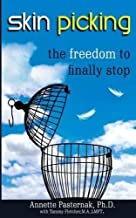Dermotillomania-Excoriation Disorder
Excoriation disorder (also referred to as chronic skin-picking or dermatillomania) is a mental illness related to obsessive-compulsive disorder. It is characterized by repeated picking at one’s own skin which results in skin lesions and causes significant disruption in one’s life.
Clstr1:
Wik1: W060
Diagnoses: Dermotillimania (Excoriation Disorder)
USPatnts: Est. 4%
WrldPatnts:
SexRatio: M;F+
AveOnset: Can be permanent
Brain Area: anterior cingulate cortices-not inhibiting uncontrollable picking; inadequate SAPAP3 gene may also be a factor
Symptoms: picking sores into skin on the body; follows tension with relief following the act; mostly on the face by fingers or tools
Progression & Effects: causes scarring and disfigurement followed by shame and guilt; 11.5% attempt suicide; 79% pleasure with picking skin
Causes: childhood sexual abuse, rage against authoritarian parents, dealing with stress; affected by other itching conditions
Productive Medications: SSRI (antidepressants which increase serotonin and norepinephrine in the brain)antianxiety, antipsychotics; inositol
Productive Therapies: habit reversal training (for example, close a fist for one minute instead of picking when the urge arose)
Clstr4:
Wik4:
Patient Organizations:
Researchers&Hospitals:
Celebrities:
Other:
Youtube Video: Skin Picking Disorder (Dermatillomania)
Amazon or Library Book: Skin Picking-The Freedom to Finally Stop
Click the book to link or order from Amazon.

